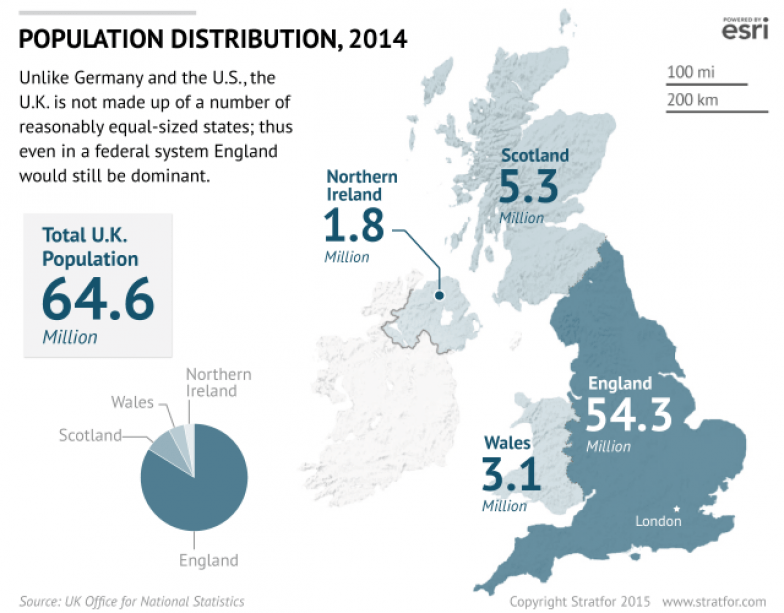
Amid the flurry of activity that has occurred in the British Parliament since the Conservative government was elected with a majority in May, one measure passed on Oct. 22 that did not receive the attention it deserved: the "English Votes for English Laws" (EVEL) law. Under the new rules, laws labeled "English" will be considered only by English parliament members in a separate session. Coming as a direct result of last year's Scottish independence referendum, EVEL has the potential to be just as important for the United Kingdom's fate as the referendum itself, since it moves the political system further in the devolution of power.
In Scotland, Britain has to cope with a union member that is demanding ever more powers and autonomy. EVEL is evidence of the existing system being stretched in an attempt to accommodate Scotland's wishes. The end goal would appear to be a shift toward outright federalism: a U.S.- or German-style system in which power is devolved in equal terms to all the underlying states.
But unlike Germany and the United States, the United Kingdom is not made up of a number of reasonably equal-sized states; it would instead be a four-state union dominated by the largest — England. Any federal government leader would have to cope with an English state government whose leader would represent 84 percent of the president's total purview.
Thus a federal solution does not appear to be the answer, and the solution that has emerged looks set to drive Britain's smaller nations further away from the center, creating more problems for the union. The United Kingdom may have escaped losing Scotland a year ago, but the prevailing currents continue to push against the bonds that tie the union together.



